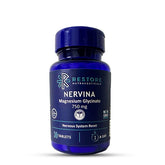Getting a good night's sleep is essential for overall health and well-being. However, many people struggle with falling asleep or staying asleep throughout the night. While lifestyle changes and good sleep hygiene are foundational, some individuals turn to supplements to aid their sleep. But can supplements truly help you sleep better at night? Let's explore the evidence.
Understanding Sleep and Its Challenges
Sleep is a complex biological process influenced by various factors, including stress, diet, environment, and underlying health conditions. Common sleep disorders like insomnia can significantly impact quality of life. Before considering supplements, it's crucial to identify and address any underlying issues that may be affecting sleep.
Common Supplements for Sleep Support
Several supplements are marketed to promote better sleep. Here's a look at some of the most commonly used ones:
1. Melatonin
Melatonin is a hormone naturally produced by the pineal gland in the brain, playing a key role in regulating the sleep-wake cycle. Supplemental melatonin is often used to address issues like jet lag or shift work sleep disorder.
-
Effectiveness: Research suggests melatonin can help people fall asleep slightly faster, especially those with delayed sleep phase syndrome. However, its impact on overall sleep quality and duration is modest.
-
Usage: Melatonin supplements are generally considered safe for short-term use. It's advisable to start with a low dose and consult a healthcare provider, especially if you're on other medications.
2. Magnesium
Magnesium is an essential mineral involved in over 300 biochemical reactions in the body, including those that regulate sleep.
-
Effectiveness: Magnesium may help improve sleep quality by promoting muscle relaxation and supporting the production of melatonin. Deficiency in magnesium has been linked to insomnia and restless sleep.
-
Usage: Magnesium supplements, such as magnesium glycinate or citrate, are often recommended for sleep support. It's important to adhere to recommended dosages to avoid potential side effects like digestive discomfort.
3. Valerian Root
Valerian root is an herbal remedy traditionally used to treat insomnia and promote relaxation.
-
Effectiveness: Some studies indicate valerian root may improve sleep quality, though results are mixed. It's believed to work by increasing levels of GABA, a neurotransmitter that promotes calmness.
-
Usage: Valerian root is available in various forms, including teas, capsules, and extracts. It's generally considered safe for short-term use, but long-term safety remains unclear.
4. L-Theanine
L-Theanine is an amino acid found in tea leaves, known for its calming effects without causing drowsiness.
-
Effectiveness: L-Theanine may help reduce stress and promote relaxation, potentially improving sleep quality. It's often used in combination with other supplements like magnesium.
-
Usage: Typically taken in doses ranging from 100 to 200 mg, L-Theanine is considered safe for most people.
The Importance of Sleep Hygiene
While supplements can offer support, they are most effective when combined with good sleep hygiene practices:
-
Maintain a consistent sleep schedule: Go to bed and wake up at the same time every day, even on weekends.
-
Create a restful environment: Keep your bedroom dark, quiet, and cool. Consider using blackout curtains, earplugs, or white noise machines.
-
Limit exposure to screens before bedtime: The blue light emitted by phones, tablets, and computers can interfere with melatonin production.
-
Avoid stimulants: Reduce or eliminate caffeine and nicotine, especially in the hours leading up to bedtime.
-
Engage in relaxing activities: Practices like reading, gentle stretching, or meditation can help signal to your body that it's time to wind down.
Consulting with Healthcare Professionals
Before starting any supplement regimen, it's essential to consult with a healthcare provider. Supplements can interact with medications and may not be suitable for everyone. A healthcare professional can help determine the underlying causes of sleep disturbances and recommend appropriate treatments.











